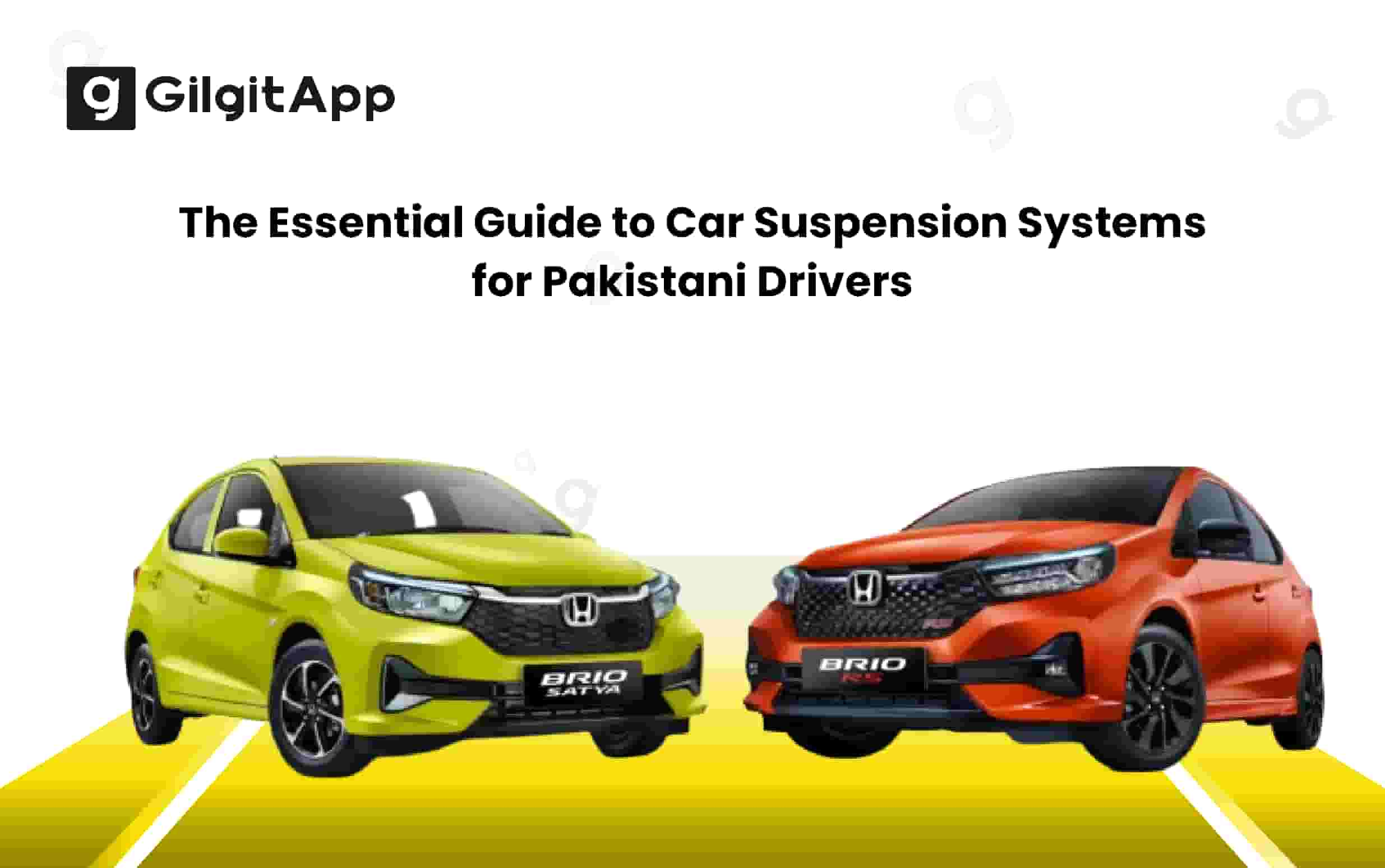Essential Guide to Car Suspension Systems for Pakistani Drivers
Learn the essentials of car suspension systems for Pakistani drivers. Discover how these systems work and their importance for a safe and smooth ride on the road.

When it comes to driving in Pakistan, having a well-functioning car suspension system is essential for a smooth and comfortable ride. In this comprehensive guide, we will explore the fundamentals of car suspension systems, including their components, maintenance, and signs of potential issues. Whether you're a seasoned driver or a new car owner, understanding the basics of suspension systems will help you make informed decisions about your vehicle's maintenance and ensure a safer driving experience.
What is a Car Suspension System?
A car suspension system is a collection of components designed to support the weight of the vehicle, absorb shocks from the road, and provide stability and comfort to the passengers. It plays a crucial role in maintaining traction, steering control, and overall ride quality.
Components of a Suspension System
1. Springs: Springs are responsible for absorbing shocks and maintaining the height of the vehicle. They come in various types, including coil springs and leaf springs, and are positioned between the chassis and the wheels.
2. Shock Absorbers: Shock absorbers, also known as dampers, work in conjunction with the springs to control the movement of the suspension. They help dampen vibrations and prevent excessive bouncing.
3. Control Arms: Control arms, also called A-arms, connect the suspension system to the chassis. They help control the vertical and horizontal movement of the wheels.
4. Anti-Roll Bars: Anti-roll bars reduce body roll during cornering by connecting the left and right wheels. They enhance stability and handling.
Types of Suspension Systems
1. Independent Suspension: Independent suspension allows each wheel to move independently, providing better handling and a smoother ride. Common types include MacPherson strut and double wishbone suspension.
2. Dependent Suspension: Dependent suspension systems connect the wheels, meaning that the movement of one wheel affects the other. This type is typically found in older or heavy-duty vehicles.
Signs of Suspension Problems
It's important to be aware of signs that may indicate potential suspension issues. Watch out for the following:
1. Excessive Bouncing: If your car bounces excessively after hitting bumps or dips, it may indicate worn-out shocks or springs.
2. Uneven Tire Wear: Uneven tire wear can be a sign of misalignment or suspension problems.
3. Pulling to One Side: If your car tends to drift or pull to one side while driving, it may indicate an issue with the suspension or wheel alignment.
4. Unusual Noises: Strange noises, such as clunking or squeaking sounds when going over bumps, can indicate problems with the suspension components.
Suspension Maintenance and Care
Proper maintenance is crucial for the longevity and performance of your car's suspension system. Here are some essential maintenance tips:
1. Regular Inspections: Periodically inspect your suspension components for signs of damage, leaks, or wear.
2. Wheel Alignment: Maintain proper wheel alignment to prevent uneven tire wear and ensure optimal handling.
3. Tire Pressure: Keep your tires properly inflated to the recommended levels for improved suspension performance.
4. Prompt Repairs: Address any signs of suspension problems promptly to prevent further damage and ensure a safe driving experience.
Conclusion
A well-maintained car suspension system is essential for a safe, comfortable, and enjoyable driving experience in Pakistan. By understanding the basics of suspension systems, recognizing signs of potential issues, and practicing regular maintenance, you can prolong the life of your suspension components and ensure a smoother ride on Pakistan's diverse road conditions. Remember, when it comes to suspension, proactive care and prompt attention to problems will save you from costly repairs and help you make the most of your driving adventures.




